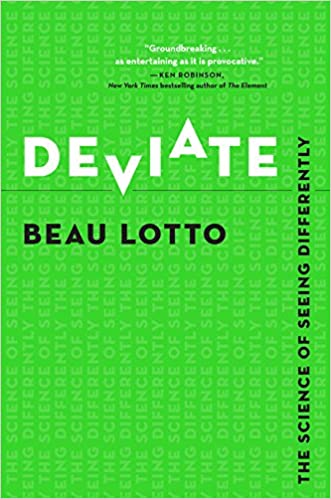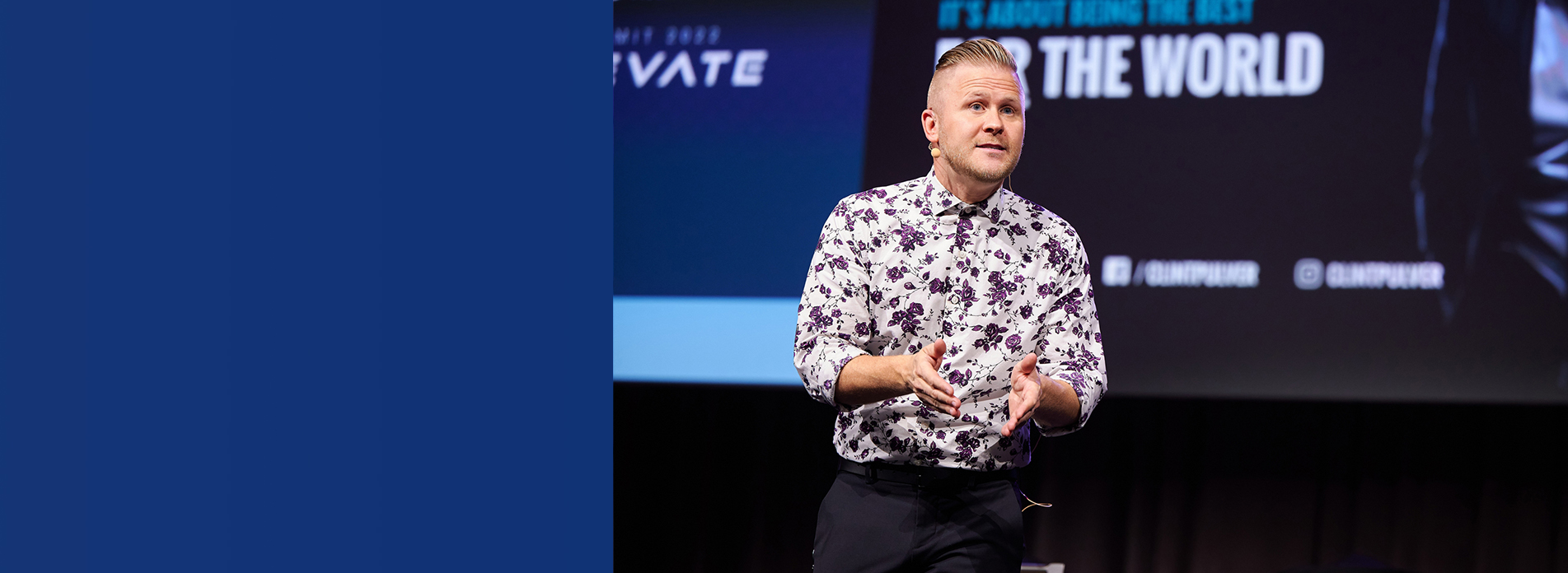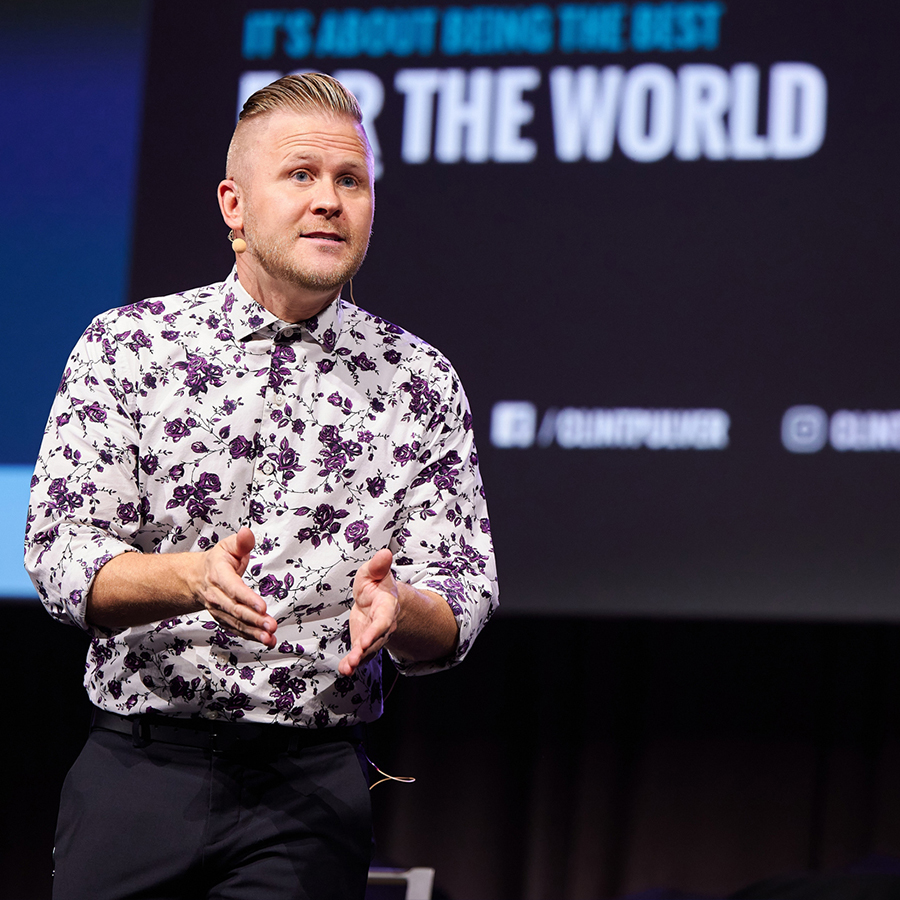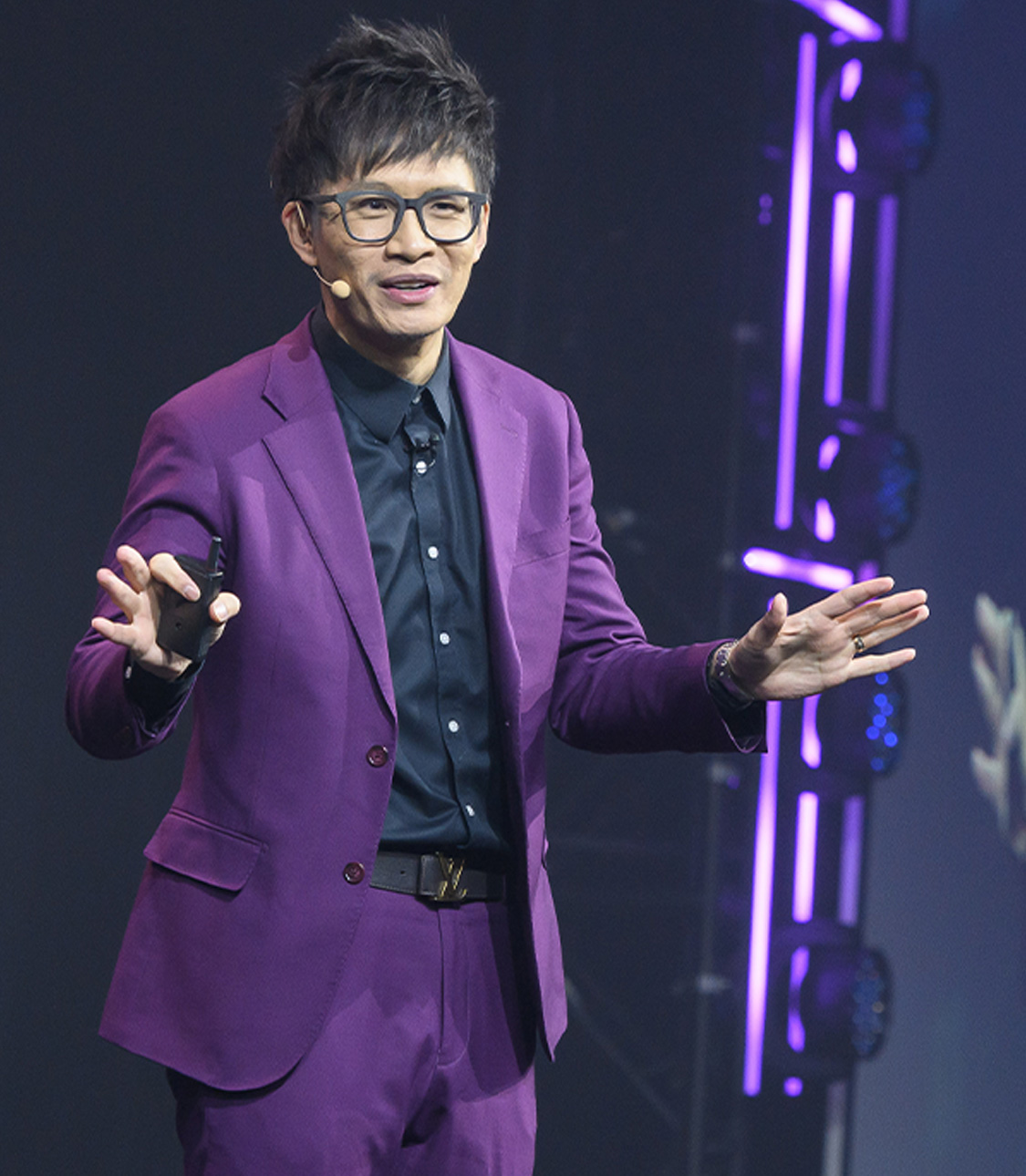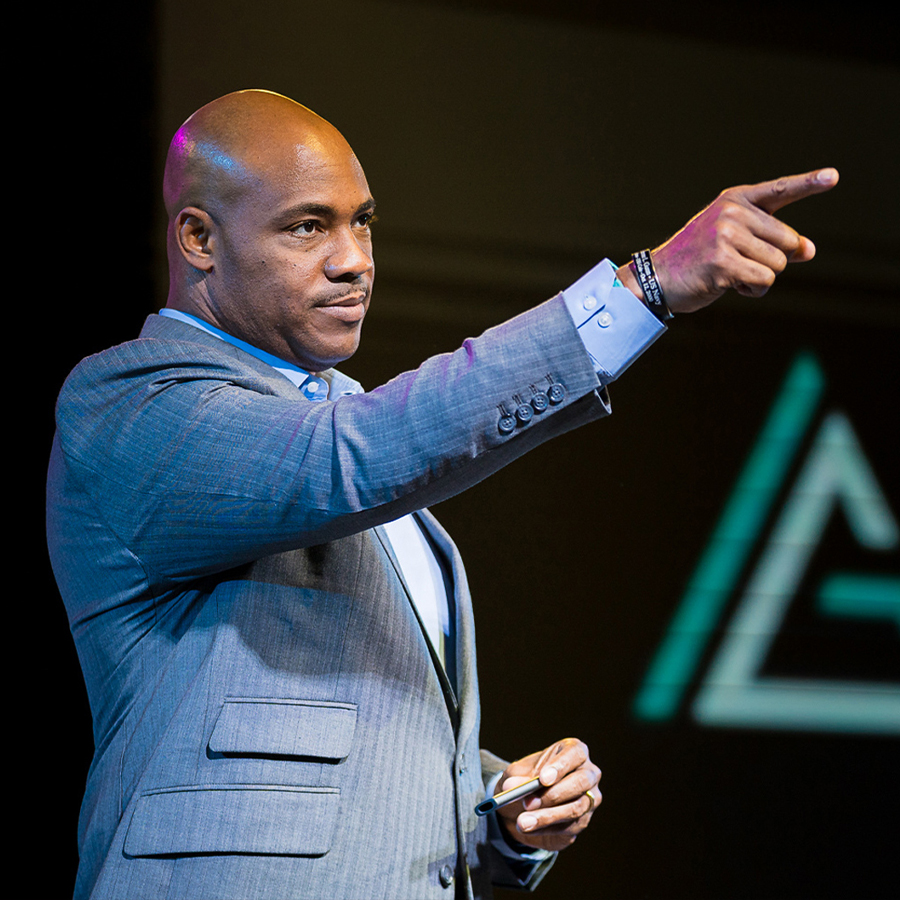Your challenge at the very first moments of your next event is to get your audience instantly connected, warmed up and plugged in. Your event’s success is decided from the start. By getting your audience members open and wanting to change, collaborate, and create, you will avoid any skepticism. Leverage your investment with Beau Lotto as your opening keynote speaker.
World-famous neuroscientist, Dr. Beau Lotto, will prepare and super-motivate your audience by using the principles of neuroscience (yes, you read that right). When you step back and consider the Big Picture, the strategy makes sense. We all know the world is changing fast — that’s a given. The challenge is to adapt…or die. What you need is a speaker who will show your audience how to thrive in the face of change. Beau gives your attendees, in practical plain talk, the neuroscience behind personal evolution. He provides the detailed steps to achieve a successful culture where your audience can empower evolvability and thrive as a result.
Beau’s megamix is more than just science, however; he weaves in ideas from technology, art, fashion, music, and performance. It’s the kind of subject matter, delivered in a friendly, entertaining style, that turns heads.
The result for you: usable ideas that create a more invigorating, inventive, and evocable company culture. As well, this could be your first step in creating more meaningful, post-transactional customer relationships. Think of his gift to your audience as insight backed by science.
Beau’s keynote visit is more than just another indistinguishable inspirational speaker yelling, “You can do it!” Much more. Here, you get a fact-based return on investment. Don’t let Beau’s science background give you pause – his talks are always common-sense, and peppered with humor, audience participation and actionable principles that audiences can apply in their professional lives.
Beau, a renowned audience arouser, is a leading expert in perception, neuroscience, and complex adaptive systems. He’s helped navigate brands like Cirque du Soleil, Microsoft and L’oreal to even greater successes. In corporate circles as well as in the scientific community, Beau is well known and well respected; he’s earned a world-class reputation as a speaker, masterclass leader and big-league corporate consultant.
He’s been electrifying crowds for over 30 years, including a three-time gig as a mainstage TED-talk speaker. How? By challenging his audiences’ perceptions about change, getting them to look past their biases, and sparking ideas about how to create a more evolved, can-do organization.
The ultimate strategy: to apply scientific truths about perception to get your staff achieving solid bottom-line results.
Audiences love him because his unique style enables him to:
• Connect with every audience member
• Get his point across using humor, interaction and evidence rather than high-tech speak
• Give your audience the tools they need to more be successful, courageous and collaborative in wildly uncertain, changing times
• Stay positive, inspirational, and aspirational (which is contagious and nourishing)
• Step up the possibilities as to what your people will consider do-able and achievable
• Share with the group how to create a culture (both at the conference, in oneself and across the organization) grounded in 10Cs: Evolutionary, Neuroscientific principles that empower individuals and systems to thrive in a constantly changing world.
If you want to build your team more effectively and have them face and conquer their problems, fears and challenges, let Beau show the way. Neuroscience – as entertainingly explained by Beau – holds the key to adaption, creativity, innovation, and perception.

